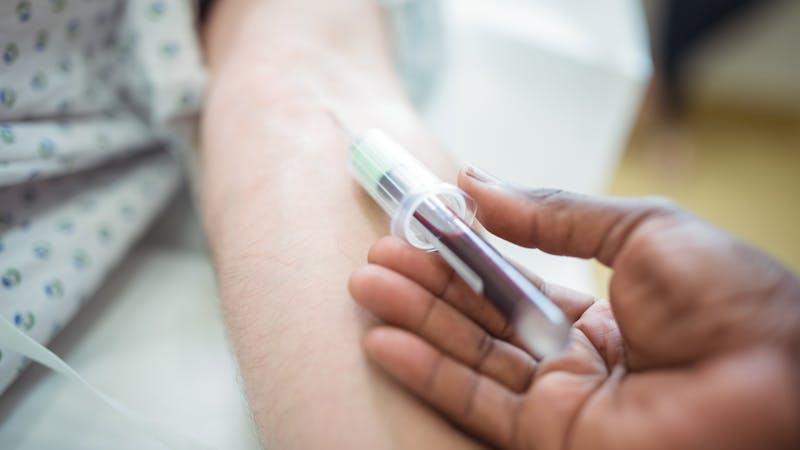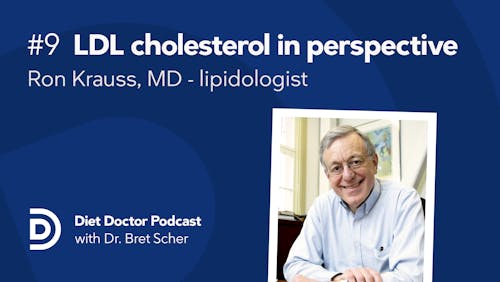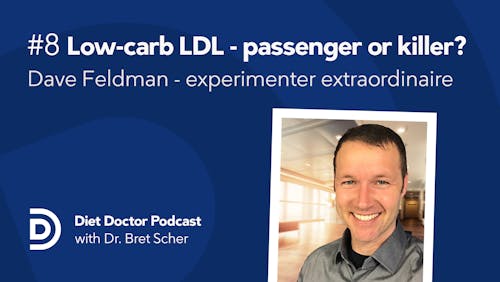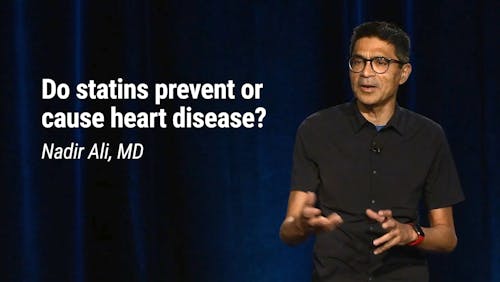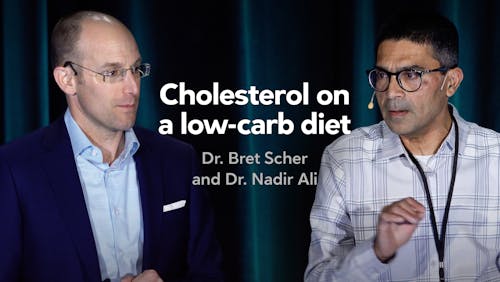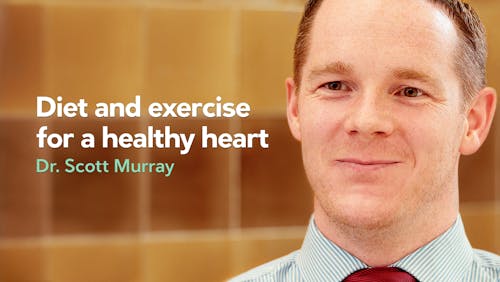How to lower triglycerides
What does it mean when you have high triglycerides? How do you lower your triglycerides?
If you’ve been told that you have high triglycerides — a type of fat (lipid) found in the bloodstream — you’re not alone. One report suggests that nearly one-third of Americans have elevated triglycerides.
Higher than normal triglyceride levels are a problem because they’re associated with increased risk of metabolic dysfunction, heart attacks, and strokes.
Although many people focus on the risks associated with high low-density lipoprotein (LDL) cholesterol, high triglycerides may be even more predictive of future heart events.
The good news is, you can use the advice in this guide to work with your healthcare provider to reduce your triglycerides naturally. You can also consider discussing medications or supplements to lower your triglycerides if needed.
Here’s what you need to know about reducing your triglycerides.
Action plan to lower triglycerides
- Eat a low-carbohydrate diet.
- Minimize sugars, refined carbs, and alcohol.
- Maintain a healthy weight.
- Perform high-intensity exercise if you can do so safely.
- If the above four interventions don’t adequately control your triglyceride levels, discuss omega-three fatty acids or other medications and supplements with your healthcare provider.

1. What are triglycerides?
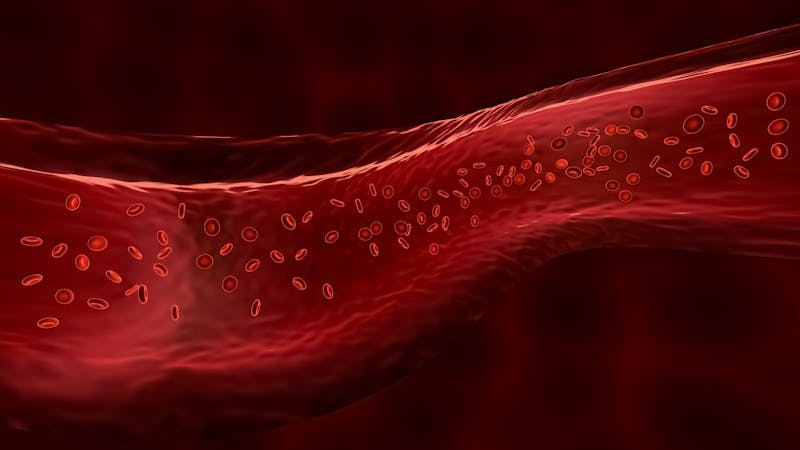
Triglycerides are fats in your bloodstream that the body either immediately burns for energy or stores in fat cells for future use.
Although they get a bad rap, from an evolutionary perspective, triglycerides were necessary for survival.
In times of plenty, triglycerides move food energy into fat stores. In times of famine or carbohydrate scarcity, we burn triglycerides for energy.
Overeating fat can increase your blood triglyceride levels. But that’s not the only way to raise your triglycerides. Even if you avoid eating fat, overeating carbs forces the liver to convert the excess energy into triglycerides for storage in your fat cells.
Instead of storing excess triglycerides, it’s healthier to burn them for energy. Fortunately, as you reduce the carbs you eat, your body switches from burning glucose for energy to burning fat in the form of triglycerides.
Your body will do this when you’re fasting or eating a low-carb or keto diet. Or, if you are physically active your body will turn to triglycerides when it runs out of stored carbs.
2. What causes elevated triglycerides?




Summary
Eating too many calories, especially sugars, refined carbohydrates, and alcohol, are the most common causes of increased triglycerides. Genetic abnormalities can also raise triglyceride levels and may require more aggressive treatment.There are two leading causes of high triglycerides. The first, and by far the most common cause, is metabolic. The second is genetic.
Metabolic causes
Metabolic syndrome, type 2 diabetes, and obesity are all associated with elevated triglycerides.
Since most of the data are observational, it’s not clear if these medical conditions cause elevated triglycerides — or if they share common root causes.
Why are metabolic conditions often linked to heightened triglycerides? High triglycerides seen in metabolic conditions are likely due to a common underlying link to the body’s resistance to the hormone insulin.
Today, many have access to a constant food supply — unlike during ancestral times. This steady supply of food can lead to overeating — especially when those calories come from inexpensive, convenient, and tasty ultra-processed foods high in sugar and fat.
Overconsuming calories, especially sugar and carbs, overwhelms the body’s ability to store energy — leading to insulin resistance, elevated triglyceride levels, and an increased risk of heart disease and pancreatitis.
Many in medicine believe a low-fat diet is the first step toward lowering triglycerides. This is in part because of national guidelines which frequently don’t recognize other safe and effective nutritional approaches.
Earlier thinking was that limiting the amount of fat people eat would reduce the fat circulating in their blood.
But the body is more complicated than that. Any caloric excess — including refined carbohydrates and “healthy” carbs such as whole grains, fruits, and legumes — is converted to triglycerides and stored as fat.
With readily available calories and carbs, our Western diet is the perfect catalyst for elevated triglycerides.
What counts as high triglycerides?
Most experts define normal triglycerides to be less than 150 mg/dL (1.7mmol/L) with very high levels being above 500 mg/dL (5.6 mmol/L) and severe elevation being above 1,000 mg/dL (11mmol/L).What counts as high triglycerides?
Most experts define normal triglycerides to be less than 150 mg/dL (1.7mmol/L) with very high levels being above 500 mg/dL (5.6 mmol/L) and severe elevation being above 1,000 mg/dL (11mmol/L).Other causes
Other conditions, such as hypothyroidism, certain kidney diseases, and pregnancy, can lead to elevated triglycerides.
Certain medications can also cause elevated levels, including steroids, estrogens, beta-blockers, and diuretics.
Genetic abnormalities can cause elevated triglycerides. This includes complex diseases such as lipoprotein lipase deficiency, apolipoprotein C-II deficiency, familial hypertriglyceridemia, familial combined hyperlipidemia, and familial chylomicronemia syndrome.
When the root cause is genetic, triglyceride levels can be markedly elevated compared to hypertriglyceridemia related to metabolic diseases. The degree of elevation with genetic causes usually means the treatment will involve medications.
3. Changing your diet to lower triglycerides
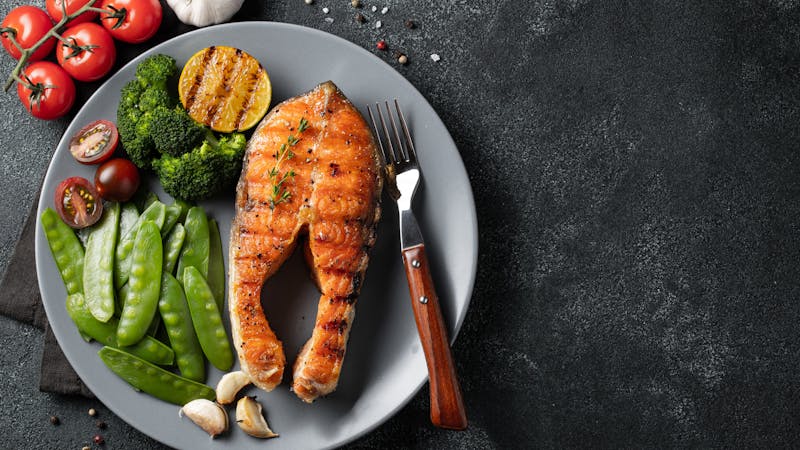



Summary
Any diet that generates sustained weight loss is effective when attempting to lower triglycerides. However, a low-carb or keto diet is particularly effective.Limiting sugars, refined carbs, and alcohol is crucial to get the best results.
Diets higher in fiber and fish may also help to lower triglycerides. Those with severely elevated levels may respond better to low-fat diets, but this is not a universal finding.
When attempting to lower triglyceride levels, many find success through altering their eating habits. Here are the dietary approaches worth trying, according to science.
1. Eat low-carb or keto
Dozens of studies show eating a very low-carb or ketogenic diet lowers fasting triglycerides.
For many doctors, this evidence seems confusing. Physicians have been taught for decades, like many of us, that a low-fat diet is best for improving cholesterol and other blood lipids. But the supporting data for low-carb diets are difficult to deny.
As the evidence continues to grow, medical groups, such as the Endocrine Society, now recommend reducing carbohydrates as the initial dietary approach for correcting high fasting triglycerides.
Comparisons between low-carb and low-fat diets consistently show that low carb is better for reducing triglycerides. This evidence is valid both when there is similar weight loss between groups and when the amount of weight lost differs.
This does not mean a low-carb diet is the only way to lower triglycerides. But it does mean that low carb is an effective way — if not the most effective way — to reduce them.
The evidence also shows that, when trying to lower triglycerides, the overall makeup of a diet may matter more than a specific dietary component.
Some doctors, for example, believe that eating more saturated fat always increases triglycerides. But patients don’t eat fat in isolation. They eat it as part of an overall diet.
Two studies report that a low-carb diet with increased amounts of saturated fat is linked to lowered triglycerides.
However, we have to be careful about defining “low carb” and “low fat.” For example, one study which defined low-carb as 40% of energy from carbs (not a true measure of “low carb”) found no significant reduction in triglycerides.
Low-carb diets appear to be the most effective eating pattern for lowering triglycerides, as long as carbs are kept consistently low (probably less than 10% of energy from carbs or less than 50 grams per day).
Popular low-carb meals
2. Limit sugar, refined carbohydrates, and too much alcohol
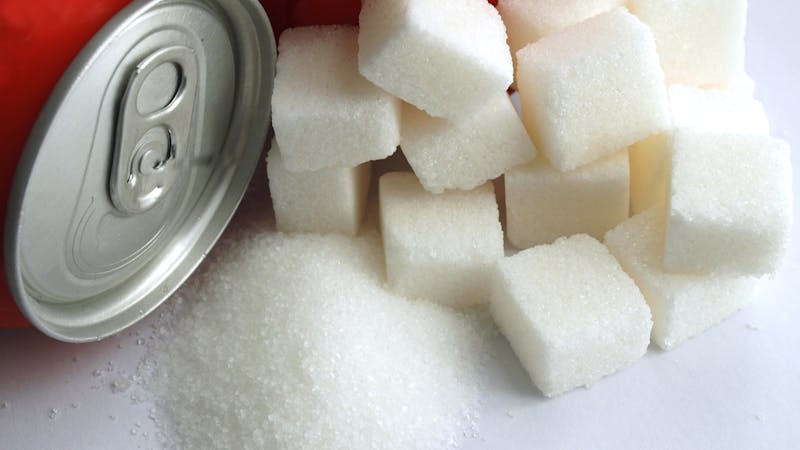



Do you have to eat a keto diet to lower triglycerides? Not necessarily. Reducing sugars, refined carbohydrates, and alcohol may be enough to lower your levels.
As we mentioned, any caloric excess can increase triglycerides. However, the most likely sources of extra calories are excess sugar, refined carbs, and alcohol.
One reason carbs and sugars commonly increase triglycerides may be that carbs and sugars are two of the most commonly overconsumed foods. However, another reason could be that fructose (a component of sugar) and alcohol are more likely to cause fatty liver, which can raise triglycerides.
One study reports that simply replacing sugar-sweetened beverages with water reduced triglycerides.
And another reports that decreasing alcohol consumption lowered fasting triglycerides.
Other factors, such as baseline obesity and insulin resistance, may make it more likely that eating carbs would cause an individual’s triglycerides to rise.
If you’re overweight or have insulin resistance, the evidence shows it’s important to reduce carbs. However, the data suggests that most people with high triglycerides — even people with normal weight — would benefit from reducing sugar, refined carbs, and alcohol.
3. Some people may respond best to a low-fat diet
For those with severely elevated triglycerides (defined as greater than 1,000 mg/dL or 11.2 mmol/L), there is a case for low-fat diets being equally good — if not better than — low carb in some situations.
One study finds that those with triglycerides below 400 mg/dL (4.5 mmol/L) respond best to low-carb diets, but those with triglycerides greater than 400 mg/dL (4.5 mmol/L) respond best to low-fat diets.
However, case reports document a decrease in severely elevated triglycerides with low-carb, high-fat diets.
It’s important to understand the cause of elevated triglycerides, as that may impact the proposed dietary treatment. If someone has a genetic cause, such as familial chylomicronemia or lipoprotein lipase deficiency, a low-fat diet may be more effective.
Aside from these extreme examples, there is no evidence to support a low-fat diet as being better than a low-carb diet for reducing elevated triglycerides.
4. Eat to lose weight
Losing just 6.6 pounds (3 kilos) can result in an average of 15 mg/dL decrease in triglycerides.
In the LookAHEAD trial, a randomized trial studying a calorie-reduced low-fat diet, the average reduction in triglycerides was only 12 mg/dL (0.13 mmol/L).
However, decreases were more significant for participants who lost more weight. For instance, the few who lost more than 15% of their body weight in the LookAHEAD trial had an average triglyceride reduction of 70 mg/dL (0.8 mmol/L). Conversely, the 25% of participants who did not lose weight showed no reduction in their triglyceride levels.
5. Fiber




Fiber can also lower triglycerides. But the way fiber affects you may have more to do with your diet’s underlying carbohydrate content.
One randomized trial reports that, for participants eating high-carb diets, lowering fiber intake raised triglycerides 45%. Adding back fiber brought triglyceride levels back to baseline.
A weaker observational study finds an apparent relationship between higher fiber intake and lower triglyceride levels.
An interventional trial of a fiber supplement does not show improvements in participants’ triglyceride levels.
The take-home lesson is that you should avoid refined carbs and sugars. If you are going to eat a high-carb diet, you should make sure it’s also high in fiber.
6. Eat more fish
Eating fish and taking omega-three fatty acid supplements can both significantly decrease triglycerides.
One randomized trial reports those who ate 270 grams of salmon twice each week reduced triglycerides by an average of 28 mg/dL (0.32 mmol/L)
You can add this triglyceride-reducing effect to the many other potential health benefits of eating fish.
See below in the supplements section for information on omega-three supplements and their impact on triglyceride levels.
4. Exercising to lower triglycerides




Summary
Although any physical activity can provide health benefits, high-intensity exercise, and resistance training to fatigue are best for lowering triglycerides.While nutrition probably has the most significant impact on triglycerides, exercise can also lower your levels. But not all forms of exercise produce equally promising results.
When it comes to lowering triglycerides, higher intensity exercise is best.
There are different ways to define high-intensity exercise. The most common is achieving greater than 85% of your maximum heart rate. However, a more useful definition may be a level of exercise where you can no longer have a conversation or a level you can maintain for only a few minutes.
Resistance training, involving a moderate amount of weight and high repetitions, can also help with triglyceride levels. Lifting extra heavy weight fewer times produces less of a significant effect.
Does this mean lower intensity exercise doesn’t provide health benefits? Of course not. As we detail in our in-depth exercise guide, physical activity of any kind has multiple health benefits.
Even if you can’t get to the point where exercise impacts your triglycerides, don’t let that discourage you. Carry on to maintain your muscles, strengthen your bones, and build your fitness one step at a time.
5. Taking supplements to lower triglycerides




The data show that diet and exercise are practical approaches for lowering triglycerides. However, for some people, lifestyle changes may not be enough. In that case, it may be worth discussing supplements with your healthcare provider.
Here’s a list of possible choices.
- Niacin: 2,000 to 3,000 mg per day
- Berberine: 500 mg twice daily
- Fish oil: Eicosapentaenoic acid (EPA) 2 to 4 grams per day (Docosahexaenoic acid, or DHA, does not seem to have much of an effect.)
- Curcumin: 80 to 100 mg daily
- Fenugreek: 10 grams per day
6. Taking medications to lower triglycerides




Summary
Many different supplements and medications can reduce triglyceride levels. Fish oil doses of 3 to 4 grams (EPA only) may be the best choice to reduce cardiovascular events and the risk of dying.However, most medications and even supplements can come with significant side effects. Always ask your doctor before starting any new supplements or medications.
In addition to supplements, several studies show certain medications may reduce triglycerides. Recommendations to take medications focus on reducing the risk of pancreatitis as well as heart disease.
The evidence to support the idea that lowering triglycerides with medications can provide cardiac protection is mixed. Many isolated studies show no benefits, but a meta-analysis of multiple studies suggests minor benefits.
Ask your doctor if any of these medications may be right for you:
Statins — The most commonly prescribed class of cholesterol-lowering drugs has a mild triglyceride-lowering effect ranging from 10% reduction at low doses to 30% at higher doses.
Fibrates — Drugs such as gemfibrozil can lower triglycerides by 30-50%.
Although fibrates do lower triglycerides, it is not clear that they reduce cardiac events or the risk of death.
Prescription niacin — Niacin can reduce triglycerides by up to 30%.
Although niacin does lower triglycerides, it is not clear that it reduces cardiac events or death risk.
Omega 3 fatty acids — These are available over the counter (as a supplement) and by a doctor’s prescription. The prescription version tends to come in higher doses and pure EPA form.
Studies of different omega 3 doses demonstrate a 20 to 50% reduction in triglycerides.
A major trial in 2019 reports people taking 4 grams of the fish oil EPA (in the form of icosapent ethyl) had a 21% reduction in triglycerides (from 216 mg/dL to 170 mg/dL) at five years.
More importantly, there was also a 5% reduction in cardiovascular events and a 0.9% reduction in death.
7. Risk of elevated triglycerides




Summary
High triglyceride levels increase the risk of coronary artery disease and pancreatitis.Elevated triglycerides can cause two main health concerns: an increased risk of heart disease and an increased risk of pancreatitis (an acute, severe inflammation of the pancreas).
Increased risk of heart disease
Medical science consistently demonstrates that people with higher triglycerides have a higher risk of heart disease. That is not surprising since high triglycerides are also correlated with other cardiac risk factors such as insulin resistance, metabolic syndrome, and more atherogenic small LDL particles.
Observational studies demonstrate the risk of a heart attack triples (from 1% to 3% over ten years) for those with triglycerides above 265 mg/dL (3.0 mmol/L) compared to those with lower levels.
Another study reports an increased risk for statin-treated patients when their triglycerides were above 175 mg/dL (2 mmol/L).
Studies comparing the impact of elevated triglycerides on cardiovascular risk suggest it may be equally or more important than high LDL cholesterol.
One study shows genetic mutations that lower triglycerides have an equal benefit for reducing heart disease risk as those that lower LDL.
Other studies report elevated triglycerides and triglyceride-to-high-density lipoprotein (HDL) cholesterol ratio are associated with smaller LDL particles and a more advanced coronary disease, whereas elevated LDL cholesterol show no significant correlation.
Most recently, an evaluation of the PREDIMED trial demonstrates that triglycerides above 150 mg/dL (1.69 mmol/L) and remnant cholesterol (particles that contain a high amount of triglycerides such as VLDL and intermediate density lipoprotein (IDL)) have greater predictive power for heart disease risk than does LDL.
However, the data on drug therapy for triglycerides don’t demonstrate consistent benefits. A meta-analysis of randomized trials, the highest-rated level of evidence, shows that lowering triglycerides with medications can reduce the risk of heart disease. But not all studies agree.
In fact, many trials show no improvement in the risk of heart disease or death.
Could triglyceride-lowering lifestyles have a greater impact than medications?
Theoretically, lifestyle interventions could have a more significant impact since they target the underlying cause of elevated triglycerides, which medications can’t address. But comparative trials have not been done.
Increased risk of pancreatitis
Severely elevated triglycerides is the third most common risk factor for pancreatitis but causes only around 4% of all cases. Gallstones and alcoholism are much more common, comprising approximately 70% of all cases.
Individuals with triglycerides above 1,000 mg/dL (11.2 mmol/L) have a 5% chance of developing pancreatitis, and that increases to 10 to 20% for levels above 2,000 mg/dL (22.5 mmol/L). For reference, the general population risk of pancreatitis is just 0.5%.
8. Summary
High triglyceride levels are a concerning medical condition associated with an increased risk of heart disease and pancreatitis. They’re also common when obesity, insulin resistance, and other metabolic disorders are present.
Fortunately, you can do something about them. By eating a low-carb diet, avoiding sugar and excessive alcohol, and doing high-intensity exercise, you can play an active role in lowering your triglycerides.
Start your FREE 30-day trial!
Get instant access to healthy low-carb and keto meal plans, fast and easy recipes, weight loss advice from medical experts, and so much more. A healthier life starts now with your free trial!
Start FREE trial!






















